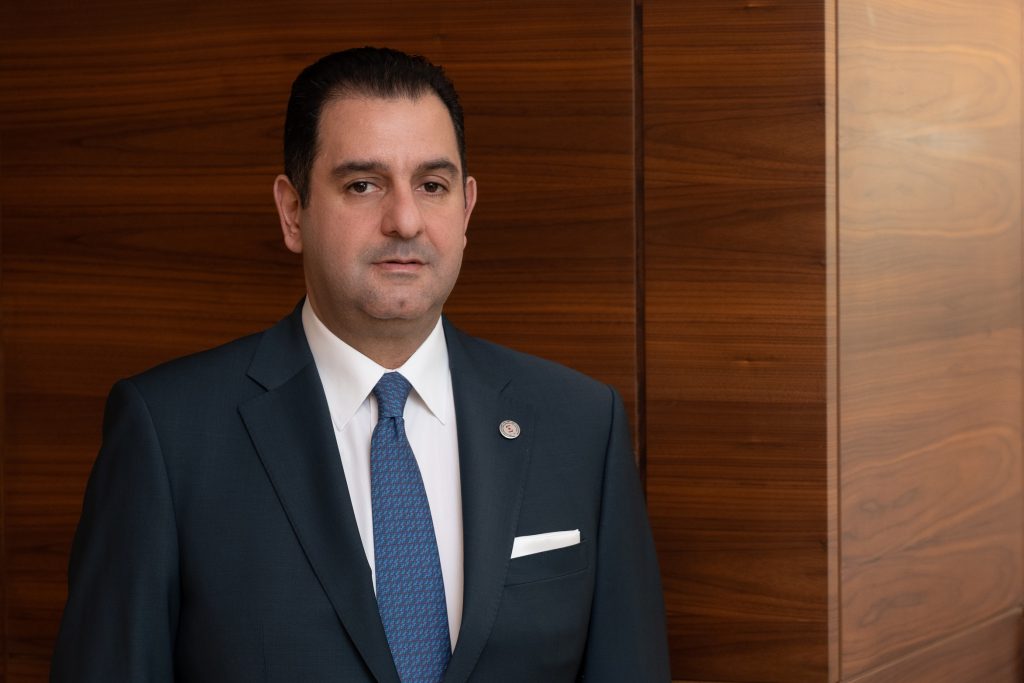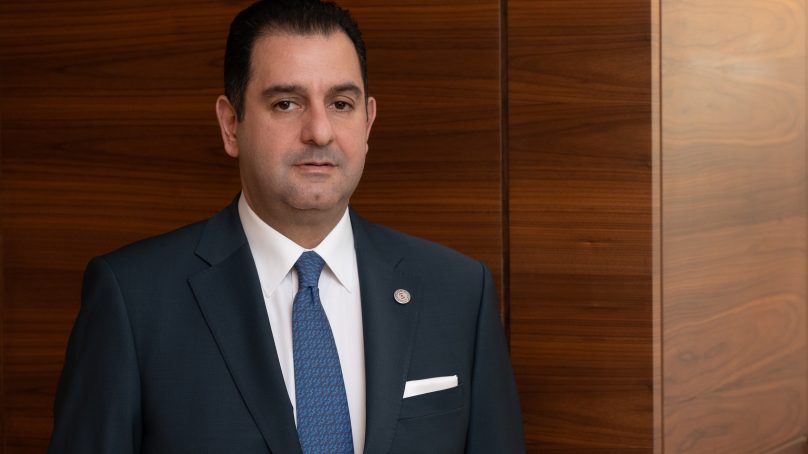
Tony Ramy, president of the Syndicate of Owners of Restaurants, Cafés, Night-Clubs and Pastries in Lebanon, carries the weight of the restaurant industry on his shoulders as he tries to entangle the web of problems that it finds itself caught in. In this exclusive interview, Ramy discusses the unprecedented challenges and the possibility of recovery.
- What steps have been taken by the Syndicate of Owners of Restaurants, Cafes, Night-clubs & Pastries in Lebanon to help the hospitality sector?
Lebanon’s hospitality sector was ailing long before October 17, 2019, mainly due to the devaluation of the Lebanese pound and the instability of foreign exchange rates in parallel markets. As a result, a lot of businesses had to close after incurring heavy losses — a total of 25,000 employees were laid off. In addition, the 75% drop in business forced many restaurants to cut hours to part time. In March 2020, a curfew was imposed to curb the spread of COVID-19. Restaurants, bars and other F&B businesses had to close, which resulted in monthly losses of 500 million USD. Then came the massive explosion at Beirut Port on August 4, destroying a huge chunk of the city, thus causing further financial losses.
The syndicate is working in collaboration with the Order of Lawyers (Beirut Bar Association) and filing a complaint against the Lebanese government to hold the parties or individuals involved accountable. Furthermore, the syndicate is liaising with international entities and communities to secure funds for the reconstruction of establishments that have been damaged or destroyed, as local donations are unable to cover the estimated costs.
The three regions most heavily affected by the port blast were: Greater Beirut, Metn and Baabda.
In Greater Beirut, 1,408 out of 2,103 establishments were damaged:
- 100% estimated losses in: Ashrafieh (366), Gemayzeh (90), Mar Mikhael (158), Saifi (23)
- 87% loss in Downtown (100 out of 115 damaged)
- 44% loss in Hamra (120 out of 270 damaged)
- 41% loss in Verdun (35 out of 86 damaged)
In Metn, 481 out of 1,609 establishments were damaged:
- 78% loss in Burj Hammoud (120 out of 154)
- 61% loss in Sin el Fil (70 out of 114)
- 32% loss in Baabda (207 out of 631)
- 71% loss in Furn Chebbak (45 out of 63)
- 44% loss in Hazmieh (45 out of 103)
The overall estimate of direct losses in the aforementioned areas is around 315 million USD.
- Tell us about the post-blast initiatives launched by the syndicate.
We launched several initiatives with friends and partners to assist the institutions worst affected by the explosion.
- The syndicate and its long-time partner Hospitality Services collaborated with Apave to collect data on losses incurred for auditing and assistance at a later stage.
- Zomato and the Lebanese Food Bank collaborated with us to launch another humanitarian aid initiative to help employees of the institutions that are no longer operational due to the blast.
- Kitopi also collaborated with us to help F&B brands grow globally.
We have many more initiatives underway. In fact, we are overwhelmed by the support we have received, proving that our efforts and hard work over the years is paying off.
- In your opinion, how can the Lebanese hospitality industry regain its strength?
All initiatives should aim to restore the trust of visitors and promote Lebanon as a touristic destination. Reviving the tourism sector is critical to economic recovery. Ensuring the return of tourism specific services will require a mix of public and private intervention, which can help the reconstruction of businesses affected by the blast and bridge the gap in earnings until the 2021 high season.
In the medium term, businesses working in the tourism sector need sustainable financing solutions; otherwise, lack of liquidity will lead to more closures and unemployment.
While these recommendations are essential, they should be accompanied by investment reforms that support Lebanon in addressing the COVID-19 pandemic and economic crisis, thereby enabling businesses to thrive beyond surviving the explosion.
Political, economic, monetary and financial stability play a key role in attracting tourists and boosting the hospitality sector.
syndicatercnp.com
Add to Favorites 



















